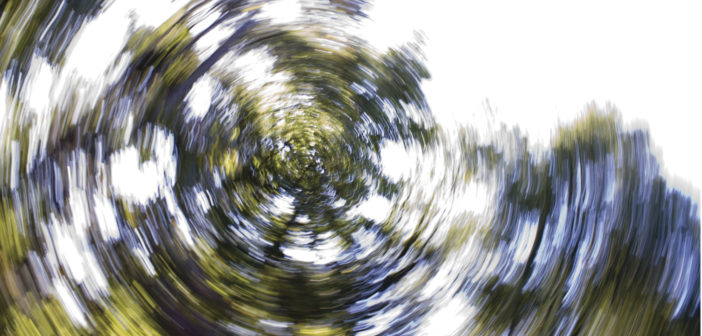There are many variations of the experience of vertigo – the sensation of spinning, dizziness, feeling off-balance. Sometimes we say it happily, like, “My date was so perfect, my head was spinning.” Sometimes it’s figurative, but not in a good way – like, “There was so much going on, my head was spinning!” Regardless, real head-spinning, or vertigo, is never fun.
Every day, I see a few patients who come to me with some variation of vertigo. Some describe the feeling that they, themselves, are spinning, while others talk about the world spinning around them. While there is much written about the varying causes of these subtle but important differences, the causes vary quite a bit. Some relate to the ear, hence my involvement; but many causes relate to issues including cardiovascular and neurologic problems. We in the medical profession do our best to point our patients in the right direction to get relief.
The age of a patient with vertigo has much to do with the way I approach treatment. A 25-year-old who has a slight runny nose and woke up suddenly with the room spinning and had to “Army crawl” to the toilet to vomit is in a different category (likely an inner ear infection) than a 75-year-old who woke up with the room spinning and is also experiencing slurred speech and facial drooping (likely a stroke).
The younger patient does not really have to rush to the emergency room for this issue, since it is likely inner ear-related and, while it is certainly a miserable condition, is not life-threatening. The 75-year-old, however, definitely needs to head to the ER to be examined to rule out a stroke, because with a stroke, minutes lost is brain lost.
If your head is spinning, it might not be ear-related;
but when it is, it usually gets better!
As far as ear-related causes of vertigo, they almost always come from the inner ear. Within the inner ear is the part associated with hearing (looks like a snail) and the part associated with balance (three circular canals). It’s the latter part that causes all the trouble.
Within the balance part of the inner ear, the two main things that go wrong are infections of the nerve, and loose crystals in the semicircular canals. The inner ear infection is usually viral, so antibiotics won’t help. It makes one feel miserable for a few days and then, it gradually improves over the course of 4-6 weeks. The end of this period is usually characterized by mild unsteadiness with any sudden head motion.
Benign paroxysmal positional vertigo (BPPV) is the most common type of vertigo. And, as strange as it may sound, it is caused by tiny calcium carbonate crystals – otoconia – becoming dislodged from a small organ within the inner ear chamber called the utricle. The loose crystals (or as I joke with a patient, “loose rocks in your head”) – can be caused by a bump to the head or even occur without trauma. In this case, when you turn your head to one side or the other, the room spins for a few seconds as the crystals float around the inner ear’s semicircular canal. After a few seconds, the crystals settle and the dizziness passes. I tell patients it’s like shaking up a snow globe and they will be dizzy until those “flakes” settle. If this issue does not improve on its own, then balance physical therapy can help a lot.
So, if your head is spinning, it might not be ear-related; but when it is, it usually gets better!


















